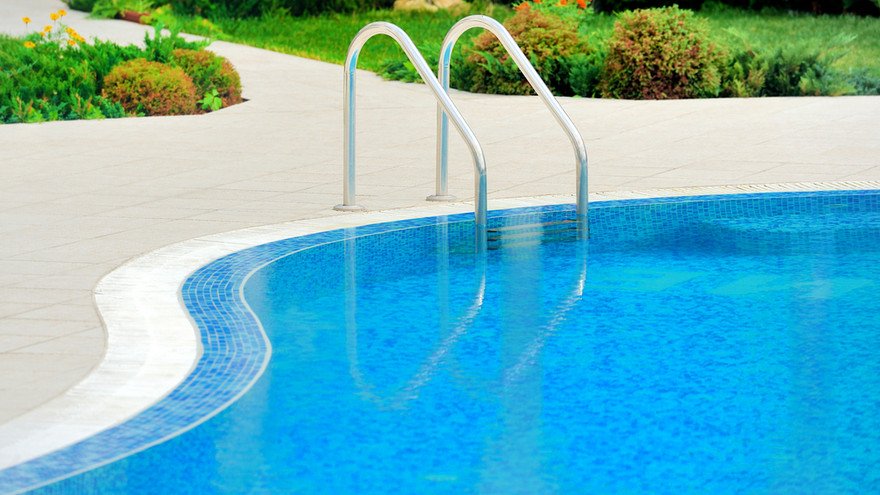OHIO SWIMMING POOL INJURY – Whether you own or rent a home with a swimming pool, or go to a private or community pool, it is important to remember that pools pose an ever-present danger for serious injuries and fatalities. The reported findings of numerous studies show the grim connection between pools and injuries.
According to the federal government’s statistics, fatal drowning remains the second-leading cause of unintentional injury-related death for children ages 1 to 14 years. For younger children between 1 and 4, the risk rises to make accidental drowning the biggest source of injury-related deaths. For every one child who dies from drowning, another four children receive emergency department care for nonfatal submersion injuries.
Men, children, and minorities are more at a higher risk for pool-related injuries, according to the Center for Disease Control (CDC). There is an annual average of 283 drowning deaths and 2,700 emergency room-treated submersion injuries involving children younger than 5 years in pools and spas. Most children who drown in swimming pools were last seen at home, had not been seen for five minutes or less, and were in the care of either one or both parents at the time of the drowning.
This article explores the legal issues surrounding swimming pool injuries, with information about getting the help of a legal professional. See Drowning and Homeowner Liability: Invitees, Licensees, and Trespassers for more information.
The Non-Fatal Swimming Pool Injury
Some of the most serious non-fatal swimming pool injuries can include traumatic brain injury (TBI), disembowelment and evisceration, and other submersion injuries. TBI can occur when a swimmer dives into pools and hits his/her head. Often, the person who hit his/her head may not even appear to be injured.
The results of swimming pool drain injuries can be catastrophic: if a child’s bottom covers the drain portal of a wading pool, the corresponding suction force can disembowel them through a ruptured rectum. Even a slight change in pressure can trigger such pool injuries, according to the U.S. Consumer Product Safety Commission. The U.S. Lifesaving Association reported that lifeguards prevented more than 564,000 water-related injuries in 2009.
Not all swimming pools have lifeguards, especially those at hotels and private residences.
Swimming Pool Dangers
Although there are state and federal laws, codes and standards for pools and spas to prevent body entrapment, hair entrapment, entanglement, and evisceration, serious non-fatal swimming pool injuries and deaths still occur.
Public wading pools for children, swimming pools specifically designed for young kids, spas with flat-drain gates, and pools with single main drain systems pose the greatest of danger of entrapment for kids. Electrical defects, slippery pool decks, ladders and stairs, improper or unsafe pool toys, pool slides and diving boards all have the potential to injure swimmers and non-swimmers at pools.
Medical Treatment and Recovery from Swimming Pool Injuries
Treatment for swimming pool injuries can be extensive, and often involves life-changing therapies and rehabilitation.
Because the colon, intestines, rectum, and GI tract are often damaged in certain pool injuries, victims of swimming pool disembowelment and evisceration generally have a colostomy that allows the removal of human waste from their body via a bag attached to the abdomen. Disembowelment victims may also have to be fed intravenously, be more susceptible to infection, and have their movement severely restricted.
In addition to physical damages, the mental and emotional damage suffered by victims of life-changing swimming pool injuries can be severe. Similarly, TBI victims will require a lifetime of chronic care, together with extensive rehabilitation and the use of expensive assistive technologies, including augmentative and alternative communication devices.
Swimming Pool Injuries and Your Legal Rights
There are state and federal laws about the safety of swimming pools and their equipment which must be observed by manufacturers, sellers and installers of pools and spas. If you or a loved one experienced swimming pool-related injuries, you may be entitled to compensation for current and future expenses, in addition to special legal damages.
Some of the legal factors that an attorney can review with you include:
- Whether you and your loved ones may be entitled to compensation for current and future medical treatment, rehabilitation, and expenses;
- If you and your loved ones can recover lost wages from work, and other out-of-pocket expenses stemming from swimming pool injuries; and
- Whether a swimming pool injury may entitle you and your loved ones to recover damages for pain and suffering.
Get a Free Initial Case Evaluation-Call, Text or Chat with a Wright & Schulte representative TODAY.
If you have suffered an injury in or around a swimming pool and believe another party is at fault, you should explore your legal options. Pool injuries can be quite traumatic or even fatal, and you may be entitled to damages that cover lost wages, hospital costs, rehabilitation, and future medical care. Contact a local attorney for a free initial claim review to learn how they can help you seek compensation from the negligent party.
Original Article found on Findlaw.



